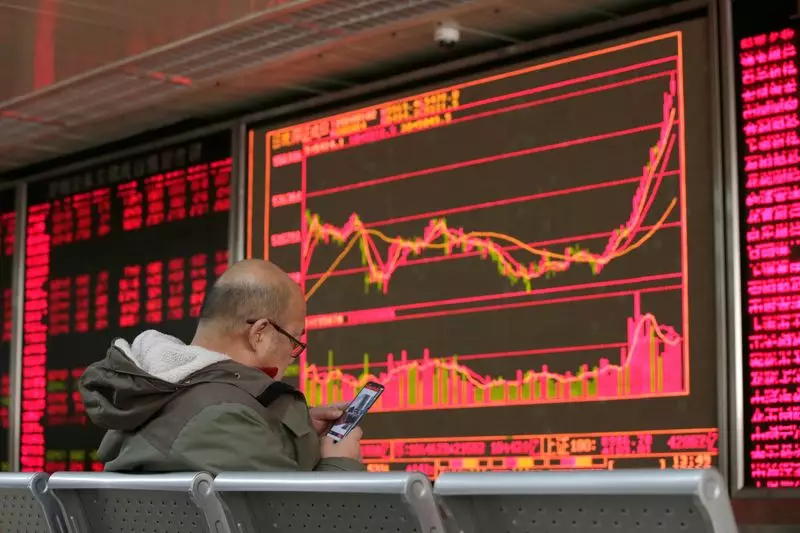Asian stocks experienced a decline on Monday, with Chinese markets leading the losses due to persistent concerns over a trade war with the West. The negative sentiment towards China was fueled by the European Union imposing steep tariffs on the import of Chinese electric vehicles, despite objections from Beijing. This further raised the possibility of a trade war between China and the EU, escalating worries about worsening trade ties. The Chinese stocks were already facing a significant decline from their peaks in 2024 over the past two months.
Anticipation of Interest Rate Signals
The anticipation of more cues on interest rates from Federal Reserve Chair Jerome Powell and key inflation data also contributed to the market’s unease. The S&P 500 and NASDAQ Composite had reached new highs, but the optimism was tempered by the uncertain outlook on interest rate cuts. The looming trade war and mixed economic data from Japan and Australia added to the apprehension in the market, leading to a cautious approach in Asian trading.
China’s Shanghai Shenzhen CSI 300 and Shanghai Composite indexes fell by 0.3% and 0.5% respectively, while Hong Kong’s Hang Seng index slid by 1.5%. The negative sentiment towards China was evident in the market performance, reflecting the concerns over trade tensions with the West. In Japan, the Nikkei 225 and TOPIX indexes retreated slightly after reaching close to record highs, driven by foreign buying amid a weaker yen. The doubts over more interest rate hikes by the Bank of Japan and weak economic growth affected the market outlook in Japan.
The broader Asian markets were largely subdued, with concerns over China affecting Australia’s ASX 200, which sank by 0.4%. The declining commodity prices also impacted major mining stocks in the region. Data from Australia showed unexpected shrinkage in home loans and contracting housing finance activities, adding to the negative sentiment in the market. South Korea’s KOSPI fell by 0.1%, while futures for India’s Nifty 50 index indicated a marginally positive open after hitting record highs in the previous week.
The Asian stock markets faced challenges on multiple fronts, including concerns over a trade war, anticipation of interest rate signals, and mixed economic data from key countries in the region. The negative sentiment towards China, fueled by trade tensions with the West, weighed on the market performance. The uncertainty surrounding interest rates and economic indicators added to the cautious approach in trading. It will be crucial for investors to monitor the developments closely and adjust their strategies accordingly to navigate through the volatility in the Asian stock markets.

